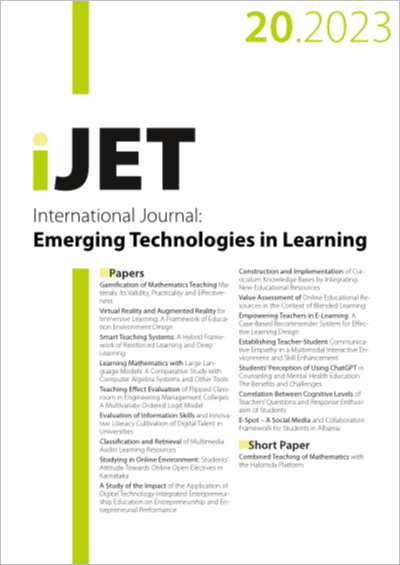Learning Mathematics with Large Language Models
A Comparative Study with Computer Algebra Systems and Other Tools
DOI:
https://doi.org/10.3991/ijet.v18i20.42979Keywords:
Large Language Models (LLMs), ChatGPT, Bard Experiment, Computer Algebra Systems (CAS), Maxima, Computational Knowledge Engines, Wolfram|Alpha, Mathematical Education, Higher EducationAbstract
Artificial intelligence (AI) has permeated all human activities, bringing about significant changes and creating new scientific and ethical challenges. The field of education could not be an exception to this development. OpenAI’s unveiling of ChatGPT, their large language model (LLM), has sparked significant interest in the potential applications of this technology in education. This paper aims to contribute to the ongoing discussion on the role of AI in education and its potential implications for the future of learning by exploring how LLMs could be utilized in the teaching of mathematics in higher education and how they compare to the currently widely used computer algebra systems (CAS) and other mathematical tools. It argues that these innovative tools have the potential to provide functional and pedagogical opportunities that may influence changes in curriculum and assessment approaches.
Downloads
Published
How to Cite
Issue
Section
License
Copyright (c) 2023 Nikolaos Matzakos, Spyridon Doukakis, Maria Moundridou

This work is licensed under a Creative Commons Attribution 4.0 International License.



